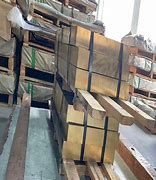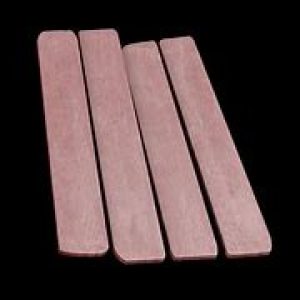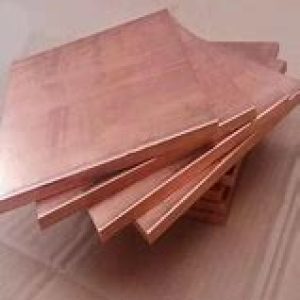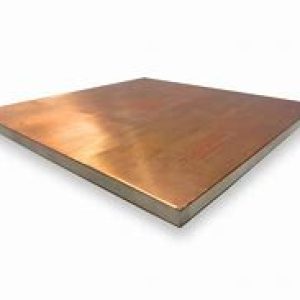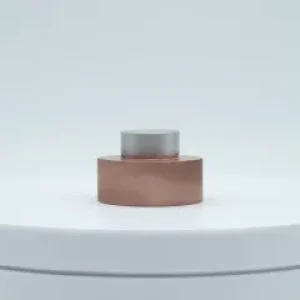Overview of Non-standard Alloy Turning Router For Cutting And Perforated Composite Panel CNC Aluminum Parts
Composition: Copper Steel Composite Panels consist of two primary layers: an outer layer of copper bonded to an inner core made of steel, typically using advanced bonding techniques like adhesive lamination or a combination of heat and pressure. This construction provides a lightweight yet robust material that can be easily fabricated into various shapes and sizes.
Aesthetics: The copper surface offers a unique and timeless look, which can range from a bright, shiny finish to a weathered patina over time, depending on the desired effect. Copper’s natural aging process adds character and individuality to each installation.
Durability: The steel core provides structural stability and increased resistance to impact, making the panels suitable for use in harsh environments. Copper itself is highly resistant to corrosion, ensuring a long-lasting finish.
Versatility: These panels can be used for exterior cladding, roofing, rainwater systems, interior, and even artistic installations due to their ability to be cut, bent, and shaped to meet specific design requirements.
Features of Non-standard Alloy Turning Router For Cutting And Perforated Composite Panel CNC Aluminum Parts
- Weather Resistance: Copper naturally resists corrosion and weathering, maintaining its integrity and appearance over extended periods.
- Lightweight: Compared to solid copper panels, the composite structure reduces weight without compromising strength, simplifying handling and installation.
- Easy Maintenance: While copper develops a protective patina over time, it generally requires minimal maintenance to retain its aesthetic appeal.
- Design Flexibility: The material can be fabricated into complex shapes and sizes, allowing architects and designers great freedom in creativity.
- Sustainability: Copper is a recyclable material, and when combined with steel, the panel offers an environmentally friendly option as both materials can be repurposed at the end of their life cycle.
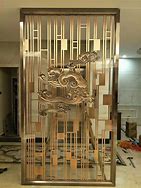
(Non-standard Alloy Turning Router For Cutting And Perforated Composite Panel CNC Aluminum Parts)
Parameters of Non-standard Alloy Turning Router For Cutting And Perforated Composite Panel CNC Aluminum Parts
When selecting a non-standard alloy turning router for cutting and perforated composite panel CNC aluminum parts, several key parameters need to be considered. Here’s a list of important factors:
1. **Material Compatibility**: Ensure the router is compatible with aluminum alloys commonly used in CNC manufacturing, such as 6061, 7075, or 2024, and can handle composite materials like GFRP (Glass Fiber Reinforced Polymer) or carbon fiber.
2. **Cutting Tools**: Choose a router with high-speed steel (HSS), carbide, or PCD (Polycrystalline Diamond) tips, depending on the required surface finish and material hardness. PCD tools are ideal for composite materials due to their durability.
3. **Speed and Feed**: The router should have a variable spindle speed and appropriate feed rates to optimize the machining process. Consult the router’s specifications for recommended values based on the material type and part geometry.
4. **Cutting Diameter**: The router bit’s diameter should match the desired hole size or cut depth. Consider using multi-flute bits for more efficient cutting and better finish.
5. **Accuracy and Resolution**: Look for a router with a high positioning accuracy and resolution, ideally within microns, to ensure precise cuts and minimal deformation.
6. **Power and Torque**: The router should have sufficient power to handle the materials and cuts without overheating or stalling. A minimum horsepower rating should be specified for the task.
7. **Controller and Interface**: A user-friendly CNC control system is essential for programming and controlling the router. Ensure the controller supports the required software for designing and editing the cutting paths.
8. **Stability**: The router base should be sturdy and well-balanced to maintain stability during operation, especially when cutting complex shapes or large panels.
9. **Cooling System**: Adequate cooling is crucial for preventing tool wear and overheating, especially when cutting aluminum and composite materials. A built-in or external coolant system should be included.
10. **Service and Maintenance**: Ensure the router has good serviceability, with easily accessible components and a warranty for parts and support.
11. **Budget**: Determine your budget for the router and consider the long-term cost of maintenance, replacement parts, and potential upgrades.
By considering these parameters, you can select the most suitable non-standard alloy turning router for your specific CNC aluminum parts and composite panel manufacturing needs.
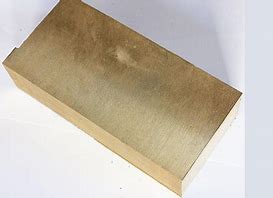
(Non-standard Alloy Turning Router For Cutting And Perforated Composite Panel CNC Aluminum Parts)
Company Profile
Metal Plates 4u is a trusted global metal material supplier & manufacturer with over 12-year-experience in providing super high-quality metal clad and relatives products.
The company has a professional technical department and Quality Supervision Department, a well-equipped laboratory, and equipped with advanced testing equipment and after-sales customer service center.
If you are looking for high-quality metal alloy clad and relative products, please feel free to contact us or click on the needed products to send an inquiry.
Payment Methods
L/C, T/T, Western Union, Paypal, Credit Card etc.
Shipment
It could be shipped by sea, by air, or by reveal ASAP as soon as repayment receipt.
FAQs of Non-standard Alloy Turning Router For Cutting And Perforated Composite Panel CNC Aluminum Parts
Q: How does the color of Non-standard Alloy Turning Router For Cutting And Perforated Composite Panel CNC Aluminum Parts change over time?
A: Copper naturally weathers and develops a patina, which can range from light brown to greenish-blue, depending on environmental conditions. This patina acts as a protective layer, enhancing the panel’s durability and adding a unique, aged look.
Q: Are Non-standard Alloy Turning Router For Cutting And Perforated Composite Panel CNC Aluminum Parts suitable for coastal areas?
A: Yes, they are particularly well-suited for coastal environments due to copper’s high corrosion resistance and the added strength of the steel core, which can withstand salt spray and harsh weather conditions.
Q: Can Non-standard Alloy Turning Router For Cutting And Perforated Composite Panel CNC Aluminum Parts be curved or formed into complex shapes?
A: Yes, due to the composite nature and the properties of copper and steel, these panels can be formed and bent to accommodate various designs, including curved surfaces.
Q: How to clean and maintain Non-standard Alloy Turning Router For Cutting And Perforated Composite Panel CNC Aluminum Parts?
A: Generally, rainfall is sufficient for cleaning. For stubborn stains or dirt, mild soap and water or specialized metal cleaners can be used, followed by rinsing with water. Avoid abrasive cleaners or scrubbers that could scratch the surface.
Q: Is Non-standard Alloy Turning Router For Cutting And Perforated Composite Panel CNC Aluminum Parts more expensive than traditional materials?
A: Initially, Non-standard Alloy Turning Router For Cutting And Perforated Composite Panel CNC Aluminum Parts may have a higher upfront cost compared to some traditional materials. However, their longevity, low maintenance requirements, and energy-efficient properties often result in lower lifecycle costs, making them a cost-effective choice in the long run.
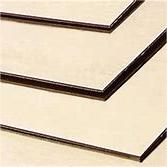
(Non-standard Alloy Turning Router For Cutting And Perforated Composite Panel CNC Aluminum Parts)

